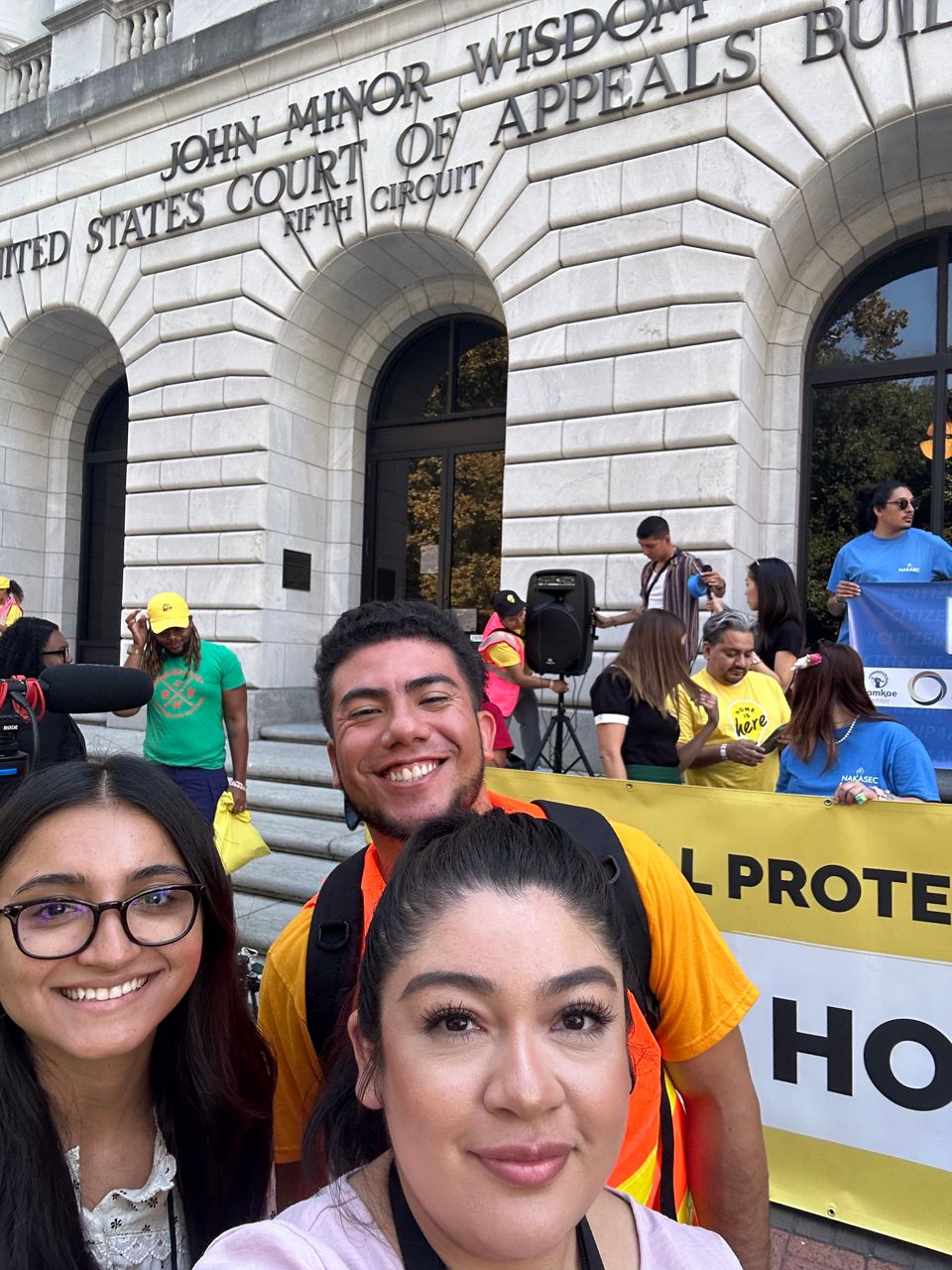LOS ANGELES — The future of the Deferred Action for Childhood Arrivals, also known as DACA, program, which protects more than 600,000 immigrants brought to the U.S. as children, hangs in the balance once again.
The 5th Circuit Court of Appeals in New Orleans recently heard arguments in a case that could determine whether the program continues. The ruling could affect the lives of thousands of so-called Dreamers, who currently live and work in the U.S. without fear of deportation.
The court has not provided a timeline for when the decision will be made, leaving DACA recipients such as Elizabeth Rodriguez, 32, in limbo. Brought to the U.S. as a baby from Mexico, Rodriguez credits DACA with enabling her to thrive.
"I managed to go to college, graduate and get an education," she said, reflecting on the opportunities the program has offered her.
DACA, introduced by the Obama administration in 2012, has faced legal challenges from the start, most notably from the Trump administration, which attempted to end the program. Despite its temporary nature, many recipients, like Rodriguez, are now adults with careers and families.
“We’re no longer the young teenagers we were when we were first approved by the program," Rodriguez said. "Now, we’re full-fledged adults. We have businesses, established careers, and in many cases, we have families.”
Opponents of DACA, including the Federation for American Immigration Reform, or FAIR, argue the program is unconstitutional, as it was never approved by Congress. Ira Mehlman, a spokesperson for FAIR, emphasizes that immigration policy falls under Congress's jurisdiction, not the executive branch.
"Congress has exclusive power under the constitution to make immigration policy," Mehlman said. "The duty of the executive branch is to carry out the laws as written by Congress."

Rodriguez recently traveled to New Orleans to attend the hearing at the 5th Circuit Court of Appeals, where the next step in the legal battle will unfold. Immigration attorney Navil Canal explains that a decision could come at any time, and the case will likely be appealed to the U.S. Supreme Court.
“The decision can come any day,” Canal said. “Regardless of what it is, both sides will likely appeal.”
While the uncertainty continues, DACA recipients are encouraged to renew their protections, though the program remains closed to new applicants. Organizations like the Coalition for Humane Immigrant Rights of Los Angeles, or CHIRLA, are hosting workshops to help with renewal applications, including one scheduled for Oct. 24.
For Rodriguez, the fight is far from over.
“What’s happening now with the uncertainty around DACA really highlights how broken our immigration system is,” she said.
Still, Rodriguez remains hopeful that a permanent solution will eventually emerge.
"We really, really need a permanent solution," she said.
Until then, Rodriguez continues to work, hope and fight for a future where Dreamers no longer live in fear of losing the only home they’ve ever known.



